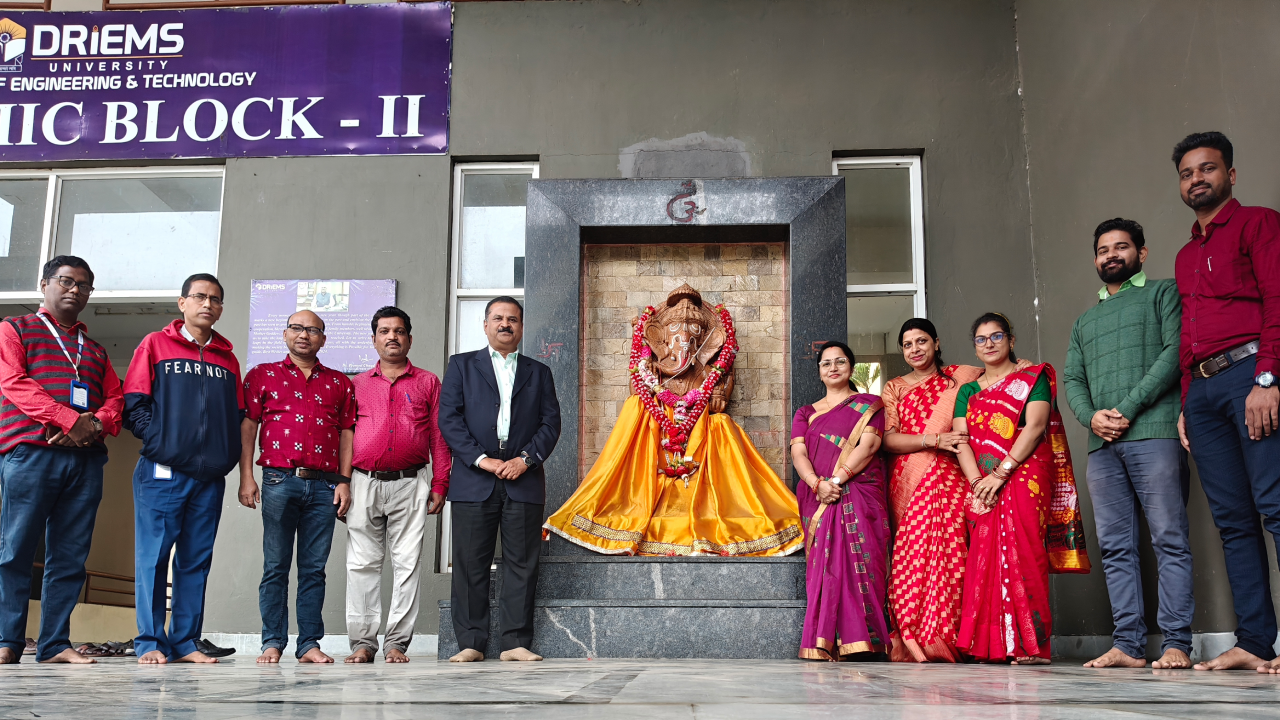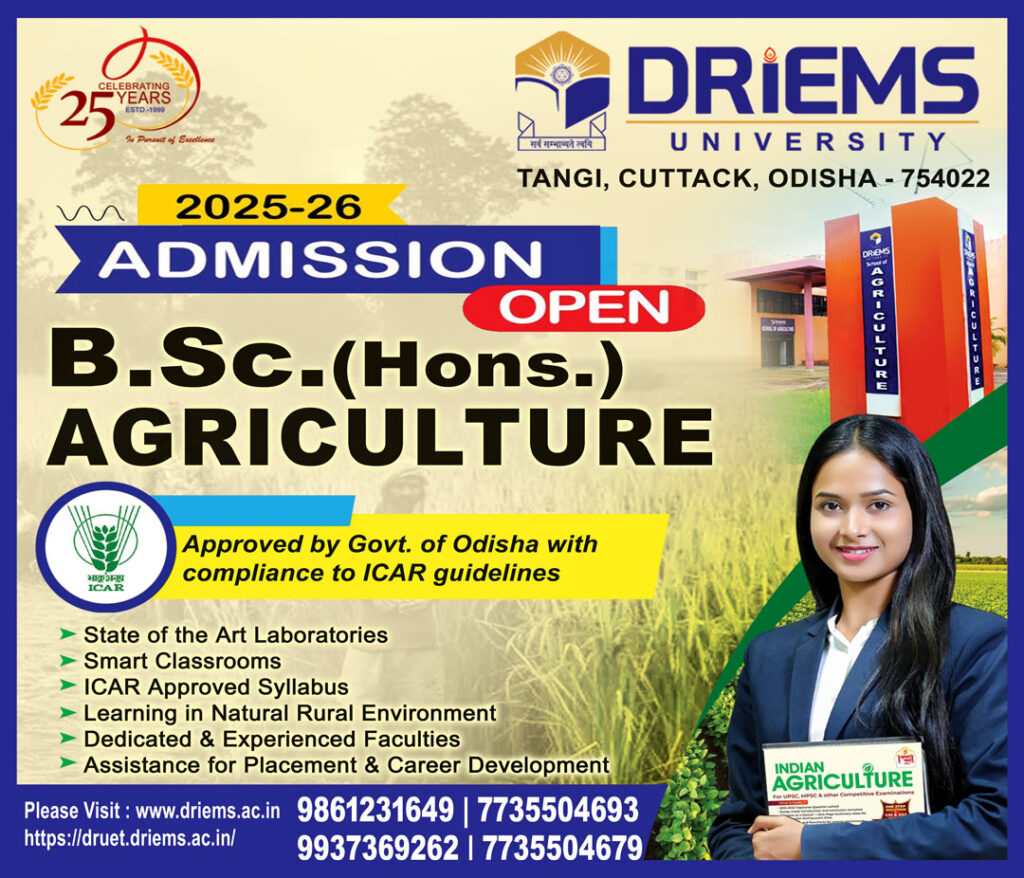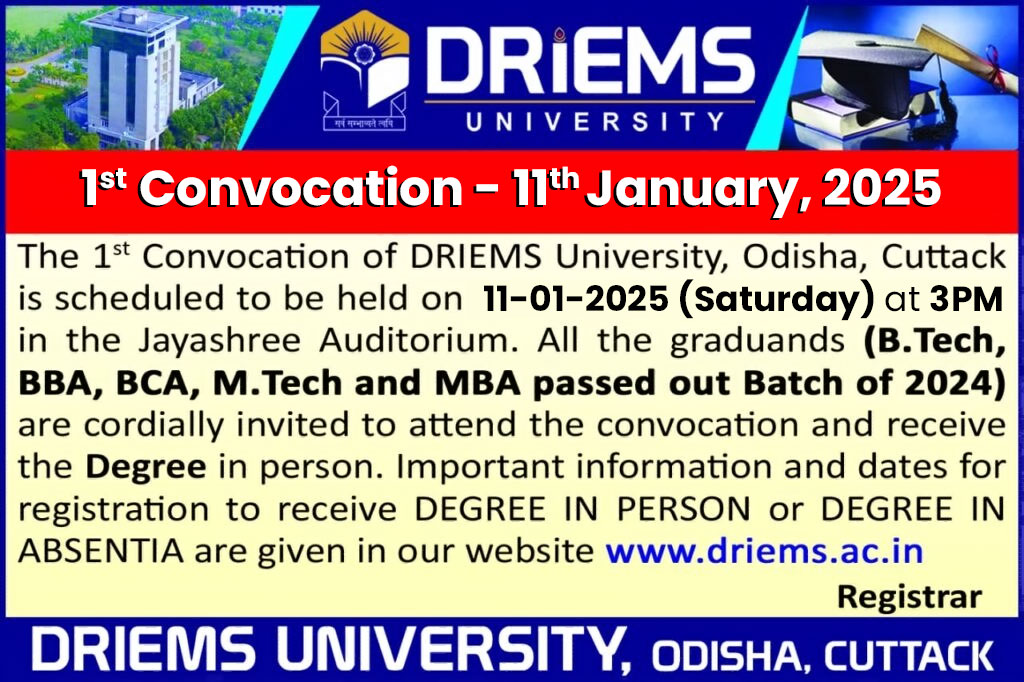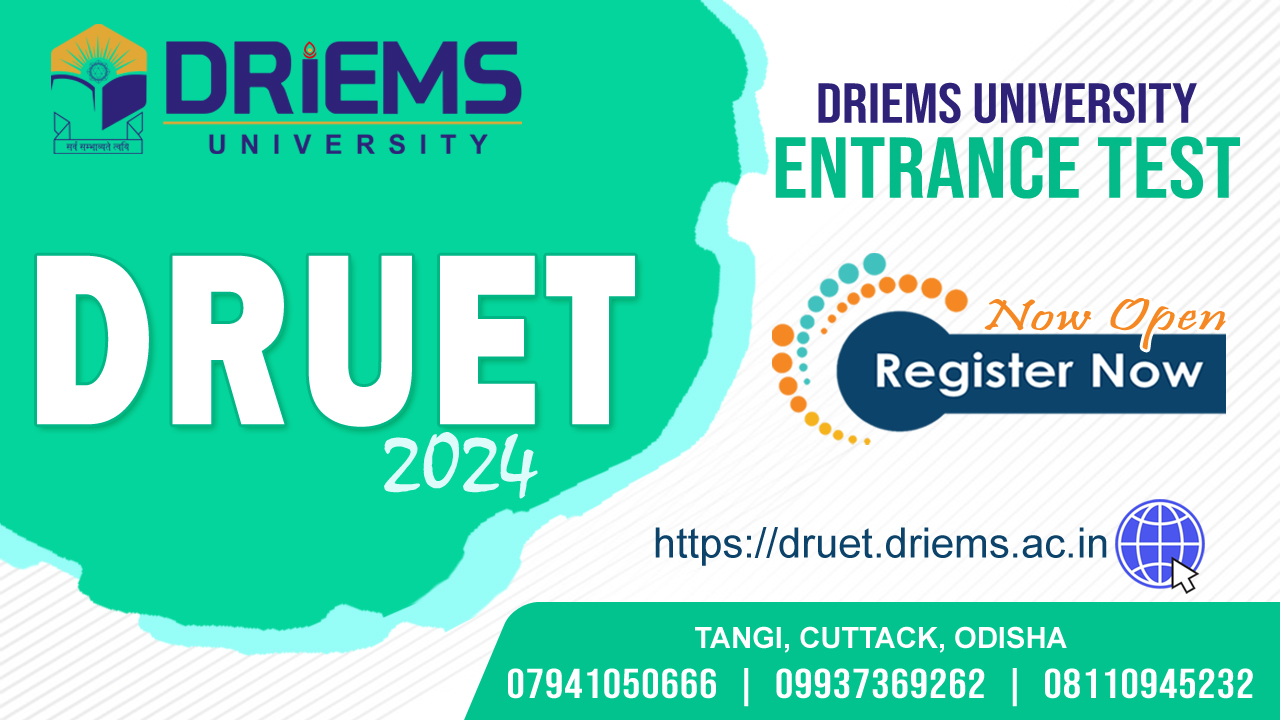
Admission Open For 2025-2026

Admission Open For 2025-2026

Admission Open For 2025-2026
Department of Electrical Engineering

Dr. Anurekha Nayak
Associate Professor & HOD
HOD’s Message
Welcome to the Department of Electrical Engineering at DRIEMS University. Since 1999, we have been dedicated in shaping skilled engineers who drive technological innovation and societal progress. Our department offers undergraduate, postgraduate, and doctoral programs designed to equip students with essential technical expertise. Our esteemed faculty ensures a strong foundation in both theoretical and practical aspects of Electrical Engineering. We provide well-equipped classrooms and advanced laboratories to create a dynamic learning environment. Students engage in projects on emerging fields like renewable energy, smart grids, and automation, gaining hands-on experience in real-world problem-solving. Regular workshops and technical sessions keep students updated with industry advancements. Our strong alumni network, excels in top organizations, reflects the quality education and industry-focused training we offer. As Head of the Department, I encourage students to explore, innovate, and excel. We are committed to foster a culture of research, creativity, and professional excellence.
Join us and be part of this transformative journey.
ABOUT
Since its establishment in 1999, Department of Electrical Engineering has been instrumental in shaping highly skilled engineers and scientists. Currently, it offers undergraduate, postgraduate, and doctoral programs in Electrical Engineering to meet the growing demands for technical expertise in science and technology. The curriculum and syllabi are regularly updated to align with the evolving industrial landscape while preserving the fundamental principles of core Electrical Engineering. The faculty members play a crucial role in shaping the department in every essential aspect while mentoring and nurturing students. Several faculty members have received national and international recognition for their teaching abilities and research contributions. Since its inception, Department of Electrical Engineering has been committed to academic excellence and innovation. The Department facilitates well equipped classrooms and laboratories. The Electrical Engineering Department actively conducts student projects aligned with emerging trends in Electrical Engineering, with a special focus on renewable and sustainable technologies. These projects provide students with hands-on experience and exposure to real-world applications, preparing them to tackle industry challenges effectively. Workshops and technical sessions are organized regularly to keep students updated with the latest advancements in the field. These workshops cover a wide range of topics, including power systems, automation, smart grids, and energy-efficient technologies, ensuring that students stay ahead in the ever-evolving industry. The department takes pride in its alumni, who have established themselves in reputed companies across various sectors. Their success reflects the strong academic foundation and industry-oriented training provided by the department. Alumni engagement initiatives also help current students gain insights into career opportunities and professional growth. Through its diverse activities, the Electrical Engineering Department remains committed to fostering innovation, research, and excellence in education.
Vision
◆To become a centre of excellence in education and research in the field of Electrical Engineering, create excellent facilities for learning and produce technically competent Electrical Engineers by imparting sound knowledge.
Mission
◆ M1: To impart comprehensive Electrical Engineering education to students, promoting critical thinking and practical skills for success in their careers and further studies
◆ M2: To equip Electrical Engineering students with technical expertise and problem-solving skills, enabling them to analyze challenges, develop solutions, and innovate in academia and industry.
◆ M3: To inspire students to engage in multidisciplinary research through continuous learning and to develop skills beyond the curriculum in emerging technologies and cultivate essential leadership, teamwork, communication, and ethical competencies for professional growth.
PROGRAM EDUCATIONAL OBJECTIVES (PEO’S)
-
PEO1
Graduates will be competent to confront challenging issues and utilize their acquired skills in an assortment of academic and industrial career opportunities -
PEO2
By applying engineering ideas, tools, and practices to solve technical issues in an ethical and responsible way, graduates will be able to meet the expectations of society. -
PEO3
Graduates will be able to lead in the workplace and perform professionally in a world that is exceedingly competitive. -
PEO4
Demonstrate a commitment to ethical practices, contributing to sustainable solutions and positively influencing communities through responsible engineering practices.
PROGRAM OUTCOMES
(PO’S)
-
PO1
Engineering Knowledge: Apply knowledge of mathematics, science, engineering fundamentals and an engineering specialization to the solution of complex engineering problems. -
PO2
Problem Analysis: Identify, formulate, research literature and analyze complex engineering problems reaching substantiated conclusions using first principles of mathematics, natural sciences and engineering sciences. -
PO3
Design/ Development of Solutions: Design solutions for complex engineering problems and design system components or processes that meet specified needs with appropriate consideration for public health and safety, cultural, societal and environmental considerations. -
PO4
Conduct investigations of complex problems using research-based knowledge and research methods including design of experiments, analysis and interpretation of data and synthesis of information to provide valid conclusions. -
PO5
Modern Tool Usage: Create, select and apply appropriate techniques, resources and modern engineering and IT tools including prediction and modeling to complex engineering activities with an understanding of the limitations. -
PO6
The Engineer and Society: Apply reasoning informed by contextual knowledge to assess societal, health, safety, legal and cultural issues and the consequent responsibilities relevant to professional engineering practice. -
PO7
Environment and Sustainability: Understand the impact of professional engineering solutions in societal and environmental contexts and demonstrate knowledge of and need for sustainable development. -
PO8
Ethics: Apply ethical principles and commit to professional ethics and responsibilities and norms of engineering practice. -
PO9
Individual and Team Work: Function effectively as an individual, and as a member or leader in diverse teams and in multi-disciplinary settings. -
PO10
Communication: Communicate effectively on complex engineering activities with the engineering community and with society at large, such as being able to comprehend and write effective reports and design documentation, make effective presentations and give and receive clear instructions. -
PO11
Project Management and Finance: Demonstrate knowledge and understanding of engineering and management principles and apply these to one‟s own work, as a member and leader in a team, to manage projects and in multidisciplinary environments. -
PO12
Life-long Learning: Recognize the need for and have the preparation and ability to Engage in independent and life- long learning in the broadest context of technological Change.
PROGRAMME SPECIFIC OUTCOMES
(PSOs)
-
PSO1
Demonstrate proficiency in the characteristics, functionality, analysis, and design of electrical devices, along with their applications in industry and other sectors. -
PSO2
Facilitating the adoption of modern and appropriate approaches for sustainable development to provide technically feasible and socially responsible solutions to contemporary electrical engineering challenges. -
PSO3
Gain advanced knowledge in electric power generation, transmission, distribution, and the operation and maintenance of power system components, considering competitive tariffs for economic feasibility and addressing climate change concerns



















